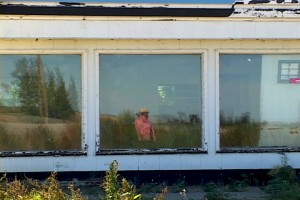An excerpt from my piece, “Slow Art in a Time of Flash Floods: What’s a Queer Feminist Settler To Do? published by .dpi: “a feminist journal of art and digital culture. Based in Montreal and published online, .dpi offers a unique and bilingual space for dialogue and interdisciplinary critical reflection, research, experimentation, and documentation. .dpi is a space where many voices situated at the intersection of art, technology and feminisms can be heard.”
Slow Art in a Time of Flash Floods: What’s a Queer Feminist Settler To Do?

“Today, post Hurricane Sandy I sit with these questions and some of the art I have created, slow art no less, in the face of the rapid acceleration of climate change. Hurricane Sandy, like many of her predecessors, was not just a ‘storm.’ There are no natural disasters. The drastic changes in weather are man-made. We are experiencing climate change in real time. Just as there is widespread silence about colonization in North America there also exists a remarkable silence about climate change.
As an artist, I feel that I am engaged in the continual process of becoming. What does it mean to have a profound understanding of myself as a queer feminist settler, and what does my work bring to the larger project of decolonization? Colonization was presented as an inevitable transition, and still is the inevitable transition of resources from Indigenous people to the settlers/colonizers, to capitalism, and then corporatism. These processes are ongoing, an attempt at totalization, the relentless absorption of everything into capitalist accumulation . There has been no room for any slackening of the exploitation of the earth, for any decline in profits.
Given these seemingly inevitable transitions, what are the inevitable transitions for the queer feminist settler artist? It is imperative to make the connections among colonization, environmental devastation, climate change, corporate greed, and power. Can slow art, poetic, abstract, and conceptual art; meaningfully address the urgent need for widespread understanding of these strengthening relationships? How do I, in my art practice, wrestle with the brutalities of colonization, and the associated catastrophes brought on by unbridled and unregulated capitalism and corporatism? As an artist, I feel the need to break the silences surrounding these processes. I am not certain where this heightened sense of urgency will take my artistic practice. I believe, though, in adding to editor Deanna Radford’s theme for this issue, that it is both a necessary and inevitable transition.”